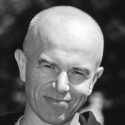Mat Oxley
24 hours of beautiful madness
On the weekend of September 20 the world’s greatest motorcycle endurance race returns to its spiritual home after a decade and a half in the wilderness at Magny-Cours. The homecoming of the Bol d’Or 24 Hours to Circuit Paul Ricard in Provence has been greeted with wild enthusiasm by those who remember the event’s heyday in the 1980s and 1990s.
The Bol at Ricard was like no other race. From a racer’s perspective it was the most prestigious 24-hour of them all, bigger even than Le Mans. From the fans’ point of view the Bol was a late summer weekend of wild atavistic abandon, punctuated by rock concerts, bullfights, hog roasts and the occasional glance at those madmen – and mad women – riding round and round in circles, their minds and bodies begging for release.
The comedown from the Bol was long and slow – for fans and racers alike – and was undertaken on nearby Cote d’Azur beaches, at least by those who understood the correct way to do things.
Twenty-four-hour racing has always been a French thing, ruled by Frenchmen riding for French teams. Terry Rymer is an exception. The Essex lad made his name in World Superbikes, then fell in love with endurance because racing day and night is an adventure like no other, during which you see things you’ll never see in several lifetimes of short-circuit racing.
Riding the dawn stint at the Bol was always breathtakingly beautiful: watching the rising sun light up the bleached rocks of the Sainte-Baume mountain ridge to the north of the track. It was a fool’s dawn, though; at 5am there are still 10 hours to go.
Rymer won the Bol five times between 1992 and 1999, first with Kawasaki and then with Suzuki. He also won the World Endurance Championship twice, recording further race victories at Le Mans and the daunting Spa-Francorchamps.
“In the middle of the night at Spa it’s all bright lights in pitlane, then you accelerate out of the pits and on to the track and, boof, it goes black, and all you can see is your two silly little headlights bouncing around,” he recalls.
“I remember getting me head down, looking over me shoulder to get into the traffic, and the little taillights coming flying past – whoosh, whoosh – and flames coming out of the exhausts. The hairs on the back on my neck used to stand up: that cold night air, the smell of brakes, the smell of tyres and hot oil. It really was a great feeling that fired me up, no matter what time of night I went out: attack, attack, attack!”
The atmosphere at the Bol d’Or was very different from dark, deadly Spa; like a race with a rock festival and funfair attached. The weather was also much better, though not always. Rymer will never forget racing through a stormy night at Ricard.
“There was lightning coming in and it was like a strobe light on the rain spray coming off the tyres. It would be daylight for a split second, then it would be night again, and for that split second every single rain drop was frozen in mid-air.”
Although Rymer was faster than his French rivals from the moment he arrived at Kawasaki, he gained more long-distance wisdom with every 24 hours. “It’s a different kind of racing: you’ve got to learn how to carve through traffic, and the big thing is trying to get the best out of a brand new set of tyres – you can make 10 seconds in that first lap if you know how to.
“I loved the whole thing and I trained really hard because you had to be fit. You also just had to have that determination, a kind of masochism, because it’s a stupid thing to do, innit? I used to stay awake for the full 24 hours. I tried sleeping once, but I woke up like a zombie. By the time it gets to three in the morning, you think, what the f**k am I doing this for – this is such a stupid thing to do!”
And not only for the racers. The Bol d’Or was always a festival of Bacchanalia for the fans – endless beers and barbecues, with inevitable results.
“You’d be coming onto the Mistral straight watching fans doing naked wheelies on bikes, then sparks flying and ambulances charging around. At dawn the camp-fire smoke lay very heavy and very dense on the Mistral. So you were caning down there in sixth gear, then for one second, which is a hell of a long time when you’re doing 190mph, you couldn’t see anything, then you’d burst out of the smoke. That kept you awake. Thinking back on it all,it was f**king dangerous.”
If the Bol was a kind of Dante’s Inferno for the riders, it was more like Mad Max for the fans, and not always in a good way.
“One year the bike broke in the middle of the night, so me and the wife are driving out of the paddock in our hire car when we get set about by hundreds of lunatic bikers with bonfire ash all over their faces. I’m trying to keep a low profile but they stop us and set about the car, banging on the windows and trying to turn the car over.
“So I had to make a decision – what am I going to do? So I stuck it in first gear, knocked over about 20 people, ran over a few legs and we were gone. Imagine if they’d caught us…”
Will this year’s Bol be as wild? Who knows, but without doubt it will be Ricard’s maddest event since Bernie Ecclestone bought the venue in 1999 and turned it into a deluxe test track.

